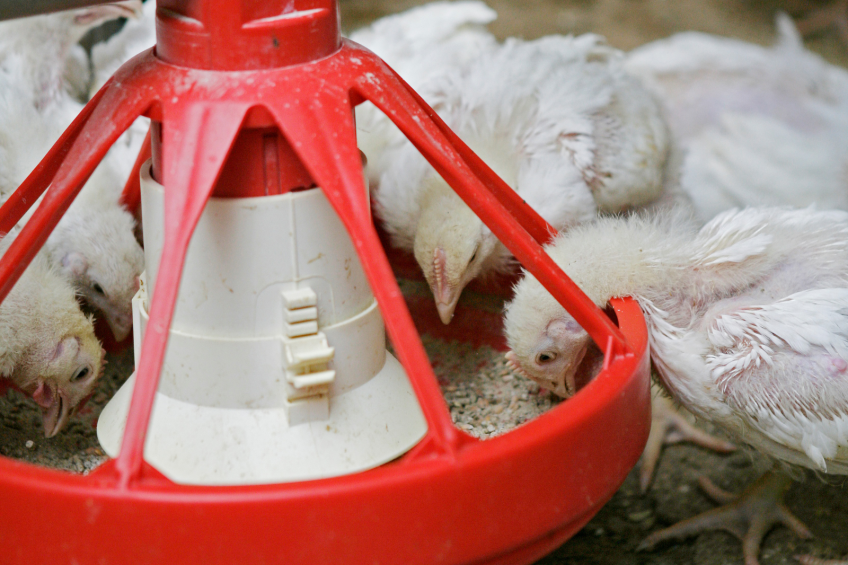EFSA panel deems vitamin B2 additive safe

Following a request from the European Commission, the Panel on Additives and Products or Substances used in Animal Feed (FEEDAP) was asked to deliver a scientific opinion on the safety and efficacy of vitamin B2 in the form of riboflavin and riboflavin 5’-phosphate ester monosodium salt.
This vitamin B2 is produced by 2 genetically modified strains of Bacillus subtilis, as an additive to feed and water for drinking for all animal species and categories. Riboflavin is primarily found as an integral component of the coenzymes flavin adenine dinucleotide and flavin mononucleotide. Flavocoenzymes participate in redox reactions of carbohydrates, fats and proteins. Riboflavin is therefore involved in the energy metabolism of men and animals.
No safety issues
The products under consideration are riboflavin produced by 2 genetically modified Bacillus subtilis strains and riboflavin 5′-phosphate ester monosodium salt (hereafter referred as to riboflavin 5′-phosphate sodium). Riboflavin 5′-phosphate sodium is prepared by phosphorylation of riboflavin. Neither the production strains nor their recombinant DNA were detected in the final riboflavin products. Therefore, the riboflavin under assessment does not give rise to safety concerns with respect to the genetic modification of the production strain.
Wide safety margin
Compositional data on riboflavin containing products produced by either strain did not indicate any substantial difference. Consequently, the conclusions below do not differentiate between products originating from the 2 strains used for fermentation. Riboflavin and riboflavin 5′-phosphate sodium are safe for the target animals with a wide margin of safety, of about 20 to 60 fold compared to the supplementation levels.
Low toxicity
Toxicological studies with the additive under assessment (containing 80% riboflavin) showed that it has a low toxicity and do not indicate a genotoxic potential. The use of the additives in animal nutrition will not significantly alter the riboflavin content of food of animal origin. The FEEDAP Panel considers that the use of the additives in animal nutrition is not of safety concern for consumers.
Effect on skin and environment
The FEEDAP Panel considers the additive containing riboflavin and riboflavin 5′-phosphate sodium not to be an irritant to skin and eyes. In the absence of data, the FEEDAP Panel cannot conclude on skin sensitisation. Riboflavin is a recognised photosensitiser, which may elicit skin and eye photoallergic reactions. Workers might be exposed to a respirable dust when handling riboflavin and riboflavin 5′-phosphate sodium; in the absence of data on inhalation toxicity, the FEEDAP Panel cannot conclude on a possible risk by inhalation.
The use of riboflavin and riboflavin 5′-phosphate sodium in animal nutrition does not pose a risk to the environment. Riboflavin and riboflavin 5′-phosphate sodium are regarded as effective in covering the animal’s requirement when administered orally.
Source: EFSA












